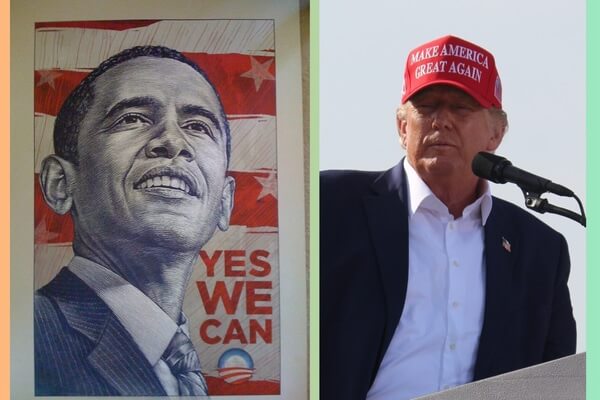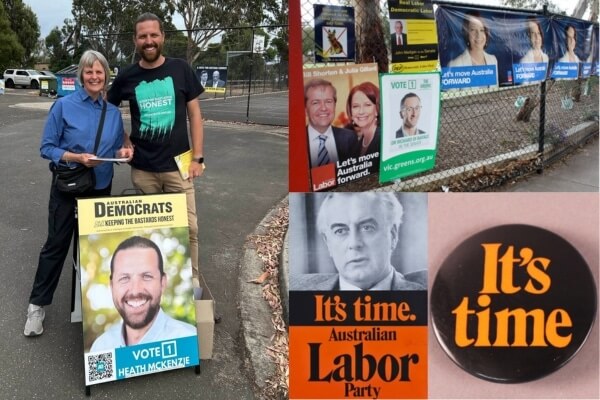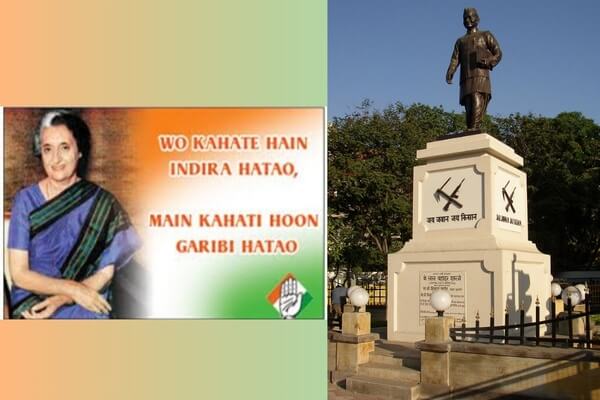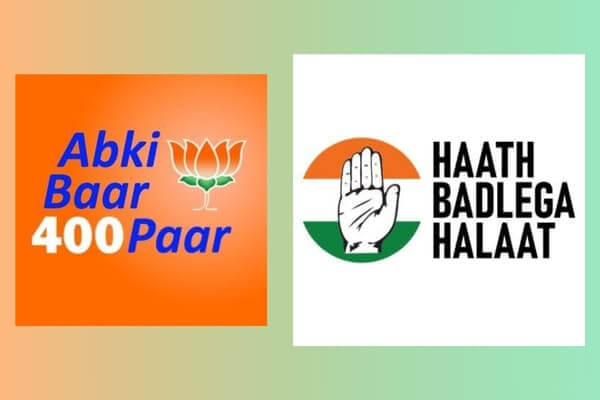In the world of politics, where every word counts and every message matters, the influence of slogans cannot be underestimated. These short phrases have the power to encapsulate the entire essence of a political campaign, rallying supporters and shaping public opinion. From historic US presidential elections to local state contests in India, slogans have played a crucial role in shaping political discourse and influencing voter behaviour.
In US presidential elections, slogans have often been the focal point of campaigns, representing the candidate’s vision and aspirations. Take, for instance, Barack Obama’s iconic “Yes We Can” in 2008. This simple yet resonant phrase summed up the spirit of hope and change that defined Obama’s candidacy, inspiring millions across the nation.

Similarly, Donald Trump’s “Make America Great Again” (MAGA) struck a chord with disaffected voters in 2016, promising a return to past glory and tapping into sentiments of nostalgia and patriotism. By abbreviating it to MAGA, Trump effectively turned his slogan into a rallying cry, easily shareable and ubiquitous on social media platforms.
Australian political parties have also come up with some interesting slogans. The Democrats in 1996 positioned themselves well between Labor and Liberal with the slogan “Keep The Bastards Honest.” How Australian is that. Of course, the iconic 1972 Labor Party cry of “It’s Time” is considered to be one of the cleverest election marketing in this country. In 2010, Julia Gillard had the slogan “Let’s Move Australia Forward” just as the economy was emerging from the GFC.

Moving closer to home, throughout India’s electoral history, slogans have served as powerful instruments for political parties to communicate their agendas and aspirations. From the Congress’ “Garibi Hatao” to the BJP’s “Abki baar Modi Sarkar,” these slogans mirror the nation’s mood and aspirations. The BJP’s “Chai Pe Charcha” and “Sabka Saath, Sabka Vikas” in the run-up to the 2014 Lok Sabha elections epitomise efforts to forge personal connections with voters and promote inclusive development.
Recent slogans like the Congress’ “Haath Badlega Haalat” ahead of the 2024 elections and the BJP’s “Modi ka Parivar” have sparked debate and discussion. These slogans aim to capture the electorate’s attention and sway public opinion. BJP’s “Abki Baar 400 Paar” signifies their ambitious goal of securing more than 400 seats in the upcoming elections, showcasing confidence and determination. The Aam Aadmi Party’s recent slogan “Jail Ke Jawab Mein Hum Vote Denge” has stirred controversy, highlighting the enduring relevance of slogans in Indian politics. While some slogans like “Sansad Mein Bhi Kejriwal, To Dilli Hogi Aur Khushhaal” aim for progress, others have faced criticism for alleged violations of advertising codes.

Slogans like “Main Bhi Chowkidar” and “Chowkidar Chor Hai” illustrate the evolving nature of political messaging, reflecting contemporary issues and electoral strategies. “Main Bhi Chowkidar” was a response campaign initiated by the BJP during the during the 2019 Lok Sabha elections, emphasising the role of every citizen in safeguarding the nation. “Chowkidar Chor Hai” was coined by the Congress Party during the same election cycle, targeting Prime Minister Narendra Modi over alleged irregularities in the Rafale deal.
The slogan “Congress Ka Haath, Aam Aadmi ke Saath” coined in 2004, played a pivotal role in bringing the Congress back to power by undermining the BJP’s “India Shining” campaign.
Looking further back at India’s political landscape, slogans like “Jai Jawan, Jai Kisan” by Lal Bahadur Shastri and “Garibi Hatao” by Indira Gandhi have left an indelible mark. During the 1978 by polls in Karnataka’s Chikmagalur, Indira Gandhi was greeted with the resonant slogan “Ek Sherni, Sau Langoor, Chikmagalur bhai Chikmagalur“, symbolising the fierce support she commanded in the region.

Following her assassination in 1984, the emotional fervour was captured by the Congress slogan “Jab Tak Suraj Chand Rahega, Indira Tera Naam Rahega”.
The slogan “Jaat Par Na Pat Par, Mohar Lagegi Haath Par” coined by PV Narasimha Rao during the 1996 elections highlighted the significance of meritocracy.
“Sabko Dekha Bari Bari, Abki Bari Atal Bihari” was the BJP’s campaign slogan in 1996, signalling a shift in power dynamics. With a promise of change, it resonated with voters seeking an alternative to the Congress. Although Atal Bihari Vajpayee did become the prime minister, his tenure lasted only 13 days. These slogans rallied the nation and influenced electoral outcomes.
But it’s not all serious; some slogans bring a smile. Who can forget Lalu’s “Jab Tak Samosa Mein Rahega Aalu, Bihar Mein Rahega Lalu”? It’s funny but memorable. Indian elections are never short of quirky slogans.
Not all slogans are created equal, and their effectiveness ultimately depends on a myriad of factors, including timing, delivery, and relevance. While some slogans have stood the test of time and become synonymous with political movements, others have faded into obscurity or been overshadowed by changing circumstances Nonetheless, they remain crucial instruments for political communication, encapsulating the aspirations and ideologies of political parties.
READ ALSO: Lok Sabha Elections: At a glance





